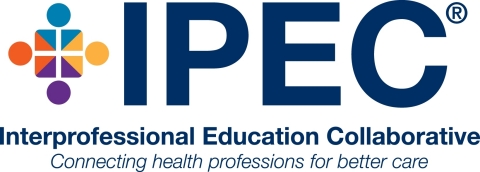IPEC Releases Updated Version of the Core Competencies for Interprofessional Collaborative Practice
IPEC Releases Updated Version of the Core Competencies for Interprofessional Collaborative Practice
WASHINGTON--(BUSINESS WIRE)--The Interprofessional Education Collaborative (IPEC) is pleased to announce the release of the IPEC Core Competencies for Interprofessional Collaborative Practice: Version 3. First published in 2011 and updated in 2016, the IPEC competencies have become an indispensable resource to advance interprofessional education for collaborative practice (IPECP). Key drivers shaping the 2023 version included the need to integrate perspectives from seven new IPEC member organizations and a desire to reflect contemporary research, policy, education, and practice realities.
“Building on coalition efforts launched over a decade ago, the 2023 IPEC competencies reinforce the dynamic relationship between interprofessional education and practice needs,” said Alison J. Whelan, MD, IPEC Executive Board Chair and AAMC Chief Education Officer. “IPEC remains deeply committed to a shared vision for a collaborative practice-ready workforce and opportunities to promote team-based care and population health. We hope that this third iteration of the IPEC competencies continue to bolster interprofessional learning experiences, health professions education, and health improvements.”
The revised IPEC competencies provide a blueprint for how to prepare learners to engage in lifelong learning and collaboration to improve both person/client care and population health outcomes. As shown in the new model, Version 3 of the competencies retain the overarching competency domain of “Interprofessional Collaboration.” The 2023 framework outlines 33 sub-competency statements organized under the following four competency areas:
- Values and Ethics
- Roles and Responsibilities
- Communication
- Teams and Teamwork
The 2023 IPEC competencies builds upon preceding versions and includes significant updates and improvements to the previous edition released in 2016. To support users, the IPEC Core Competencies for Interprofessional Collaborative Practice: Version 3 contains a compendium of materials:
- A brief history of IPEC (Appendix A) detailing collective milestones from 2009 to the present day.
- A summary of IPEC programs, projects, and resources (Appendix B).
- An expanded and revised glossary of terms (Appendix C) with 40 operational terms adopted throughout the 2023 update.
- A corresponding comparison guide (Appendix D) that provides crosswalk tools to efficiently compare the differences between the second and third versions.
This competency-based approach is designed to be measurable and adaptable for use by health and partner professions involved in interprofessional teaching and learning. Click here to review Version 3 of the IPEC Core Competencies for Interprofessional Collaborative Practice.
The 2023 framework and accompanying report were developed by an interprofessional panel of over 30 leaders, educators, and students from across the country, representing over 200 years of combined experience and spanning over 20 disciplines. Convened by the IPEC Executive Board in 2021, Working and Advisory Group members engaged in an iterative consensus-building approach, which included a literature review, data analysis, two-round modified Delphi exercise, and public comment period. This final framework is the culmination of two years of research and development with guidance by IPEC members and volunteer experts.
“A huge, monumental thank you to the many individuals who engaged with us throughout this revision process,” expressed IPEC Associate Director Shelley McKearney. “Hundreds of people completed our surveys, gave thoughtful feedback, or participated in one or more of our presentations. IPEC is indebted to the generosity and collaboration of the IPE community whose insights and suggestions were vital to completing this successful revision.”
The IPEC framework can serve as a foundation to structure and strengthen curricular and co-curricular activities to encourage team-based care and improve community health. To address a top recurring recommendation, IPEC plans to track the use and impact of the 2023 competencies in hopes to better assist schools and programs with alignment, integration, and implementation. This secondary phase will focus on the development of support materials to help operationalize IPECP. Details about next steps will be unveiled in early 2024.
To download the latest IPEC competencies, see http://www.ipecollaborative.org.
About the Interprofessional Education Collaborative (IPEC)
IPEC’s mission is to ensure that new and current health professionals are proficient in the competencies essential for person-centered, community- and population-oriented, interprofessional, collaborative practice. Eligible institutional members must be associations that represent and serve academic units at institutions of higher education that provide an educational program leading to the award academic degrees to students in one or more of the health professions that provide direct care to persons/clients/patients. For more information, visit IPEC’s website.
Contacts
Shelley McKearney
smckearney@ipecollaborative.org
(202) 463-6930 ext. 269

